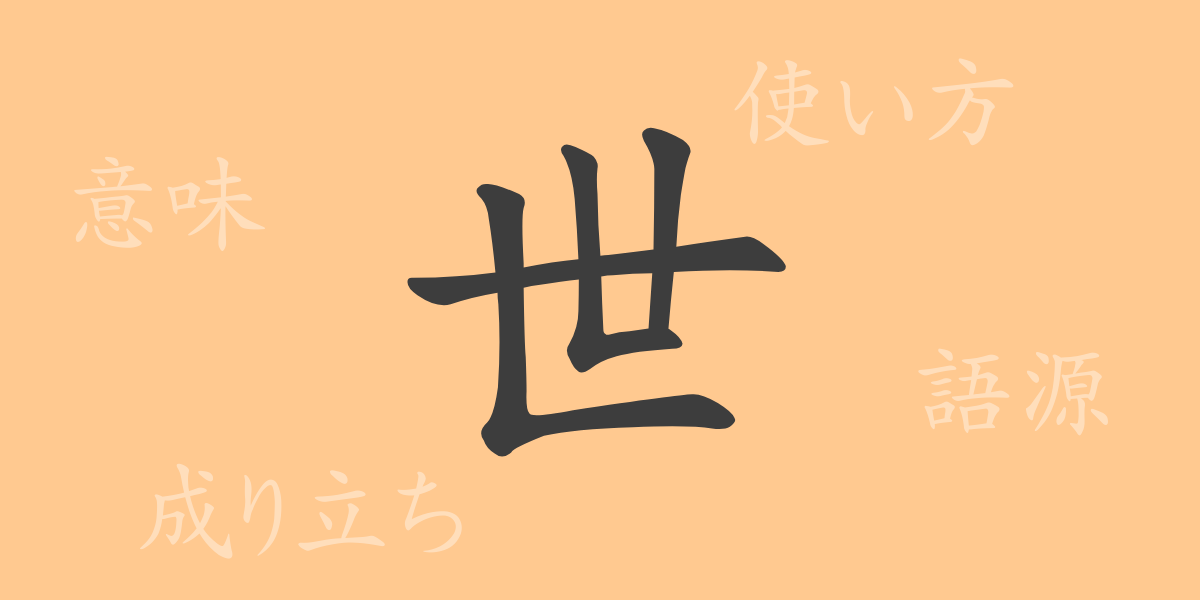The depth of Japanese kanji culture is profound, with each character bearing a long history and rich meaning. The common kanji ‘世’ (せ) is no exception. Frequently used in daily life, this character has evolved through time, embodying various meanings that significantly influence our language. This article delves into the origins, applications, and various phrases related to ‘世’, offering a comprehensive exploration of this character.
Origins of 世
The kanji ‘世’ originated in ancient China, representing successive generations. It is believed to have been formed by combining ‘十’ (じゅう), which means ten, and ‘生’ (せい), symbolizing birth or reincarnation. Over the centuries, it evolved into its present form, reflecting its etymological roots that span across generations.
Meaning and Usage of 世
‘世’ carries several meanings, most notably ‘world’ and ‘generation,’ relating to concepts of time and space. It is also used in ‘世間’ (せけん), referring to society or the public. Typically, ‘世’ appears both as a standalone word and in combination with other kanji to form various compound words.
Readings, Stroke Count, and Radical of 世
The kanji ‘世’ reflects the richness of the Japanese language in its readings and structure.
- Readings: On’yomi ‘セイ’, ‘セ’; Kun’yomi ‘よ’
- Stroke Count: 5 strokes
- Radical: One (いち)
Phrases, Idioms, and Proverbs Involving 世
‘世’ is used in a wide range of idioms, phrases, and proverbs, showcasing its versatility. For example, ‘世界’ (せかい) means the entire world, ‘世話’ (せわ) refers to taking care of someone, and ‘世論’ (よろん) denotes public opinion. A well-known proverb, ‘世の中は三日見ぬ間の桜かな’ (よのなかはみっかみぬまのさくらかな), uses cherry blossoms’ fleeting bloom to illustrate the rapid changes in the world.
Conclusion on 世
The kanji ‘世’ is deeply embedded in our life and culture, embodying a profound significance that enriches Japanese language and expression. Understanding the historical and cultural nuances encapsulated in each usage of ‘世’ enhances our appreciation of the language’s depth and beauty, allowing us to rediscover the elegance embedded in our everyday words.

























